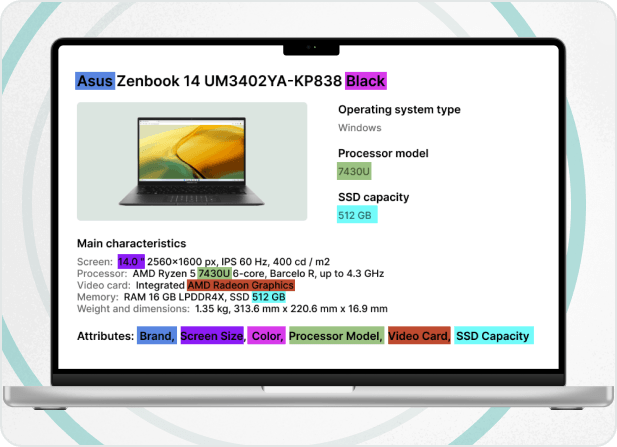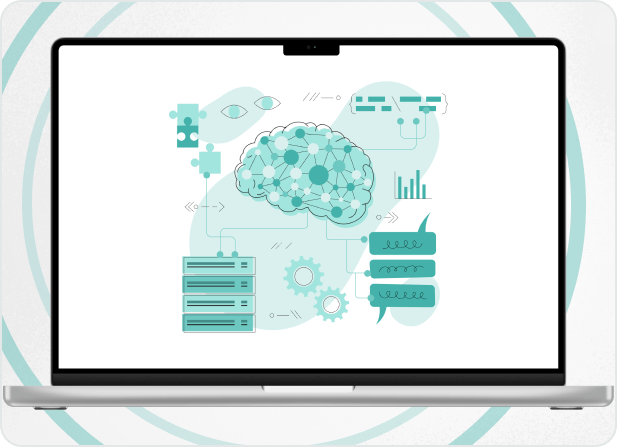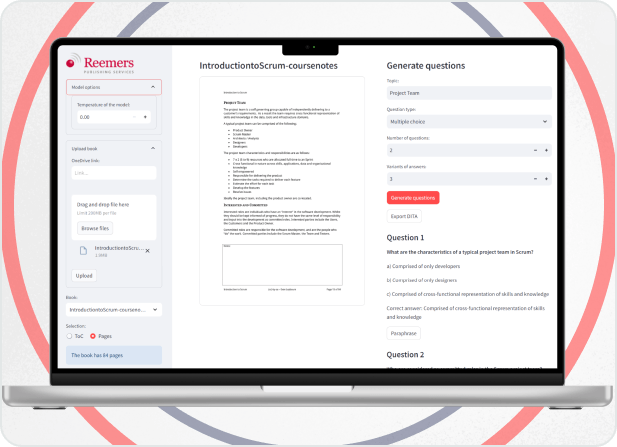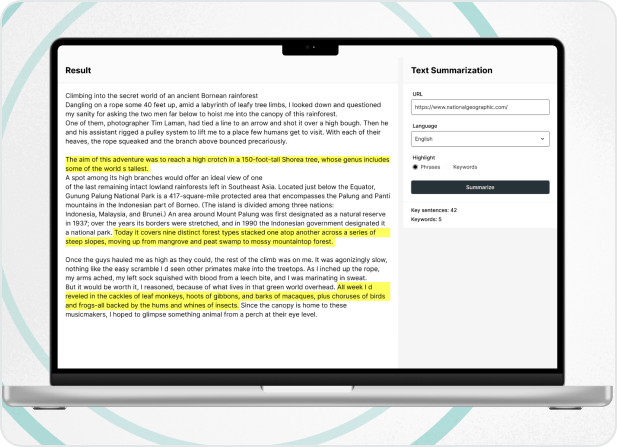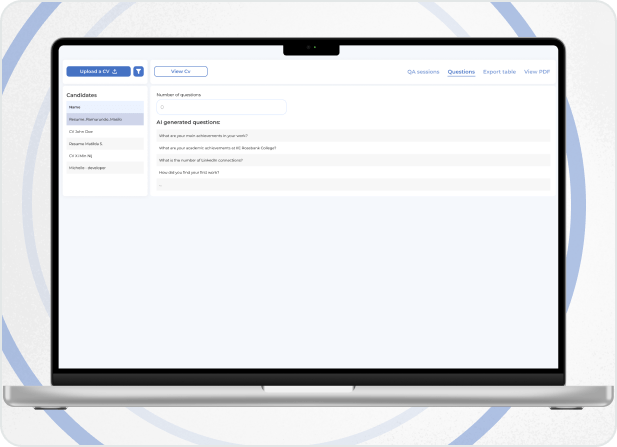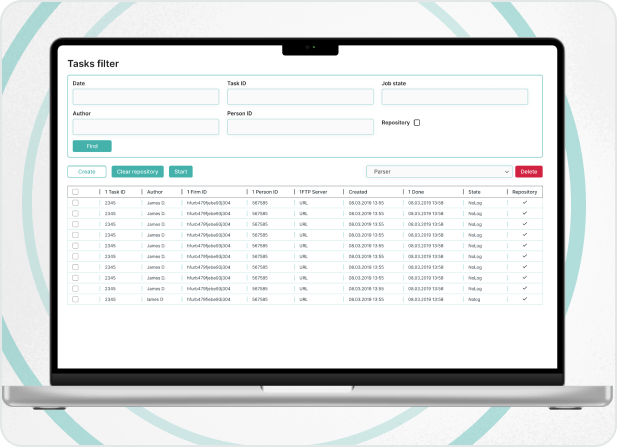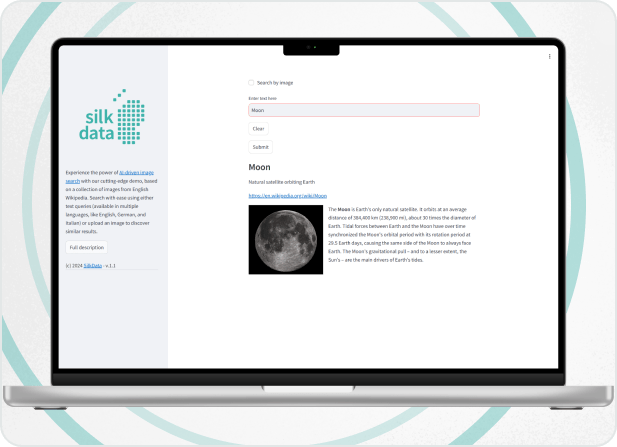
Challenge
Teachers, educational book authors, and instructors often invest considerable time in crafting assignments, quizzes, and questionnaires. The challenge arises when their focus shifts from teaching the material to designing meaningful, non-trivial questions - many of which may already be addressed in the textbook.
This task becomes even more demanding for larger courses or comprehensive textbooks, as generating a diverse range of questions, along with their variations, can be a time-consuming process. To simplify this process, there was a clear need for an intuitive and easy test maker that could automatically generate various question types and assemble assignments directly from textbooks or other educational resources.
About the Client
Our client is a textbook publisher based in Austria.
Region
Austria
Time
Ongoing
Team
6 specialists
Solution

Solution
The proposed solution is an AI question generator from text in various fields and topics. The system is based on user materials containing information in both German and English. This information can include books, articles, textbooks from the curriculum, or any other materials used in education or business.
The system generates questions using Azure OpenAI API (ChatGPT) and supports various types of questions (open-ended, multiple-choice, yes-no), generating correct answer options. An important addition is the ability to paraphrase questions and answers.
How to Make a Test Using Our AI
Question Generator?
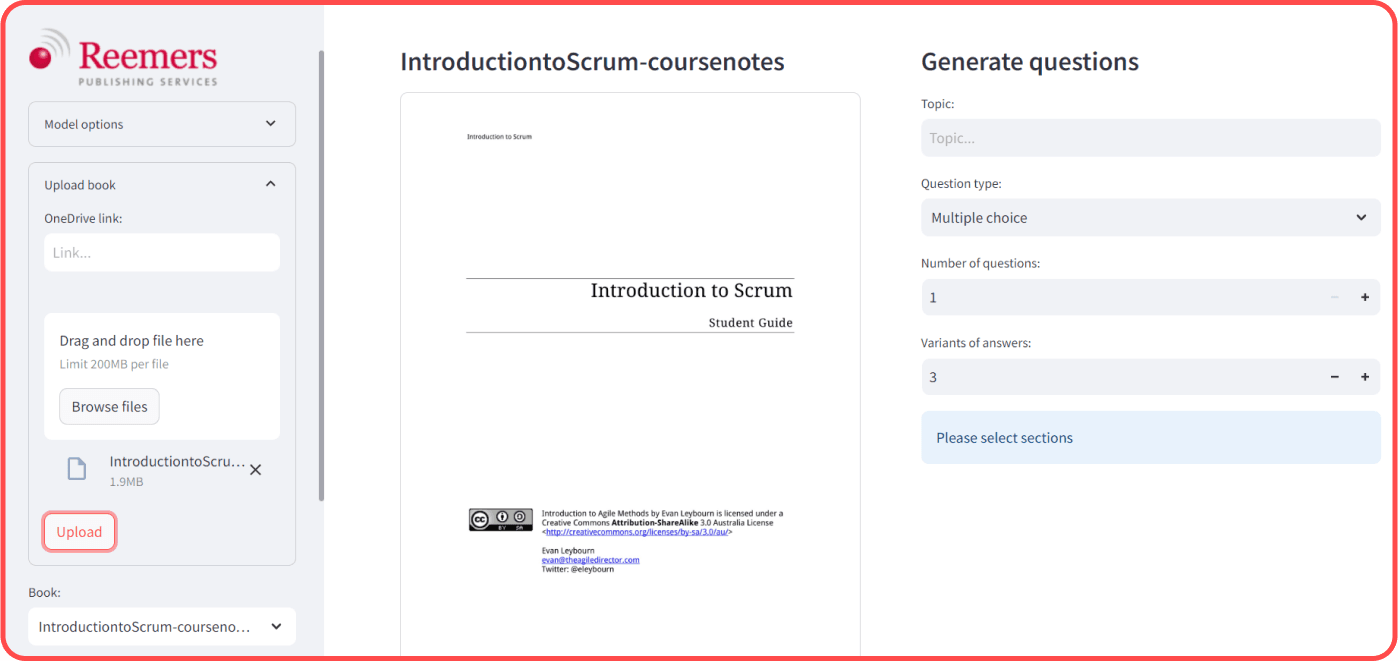
Step 1:
The user interface is pretty simple to navigate. First, the user can either upload a PDF file (whether it’s a book, article, or publication) or insert a link to the content. To generate questions, the user just chooses a specific section or range of pages to focus on. It also possible to set the level of creativity of the questions on a scale of 1 to 10 using the "model options" function.
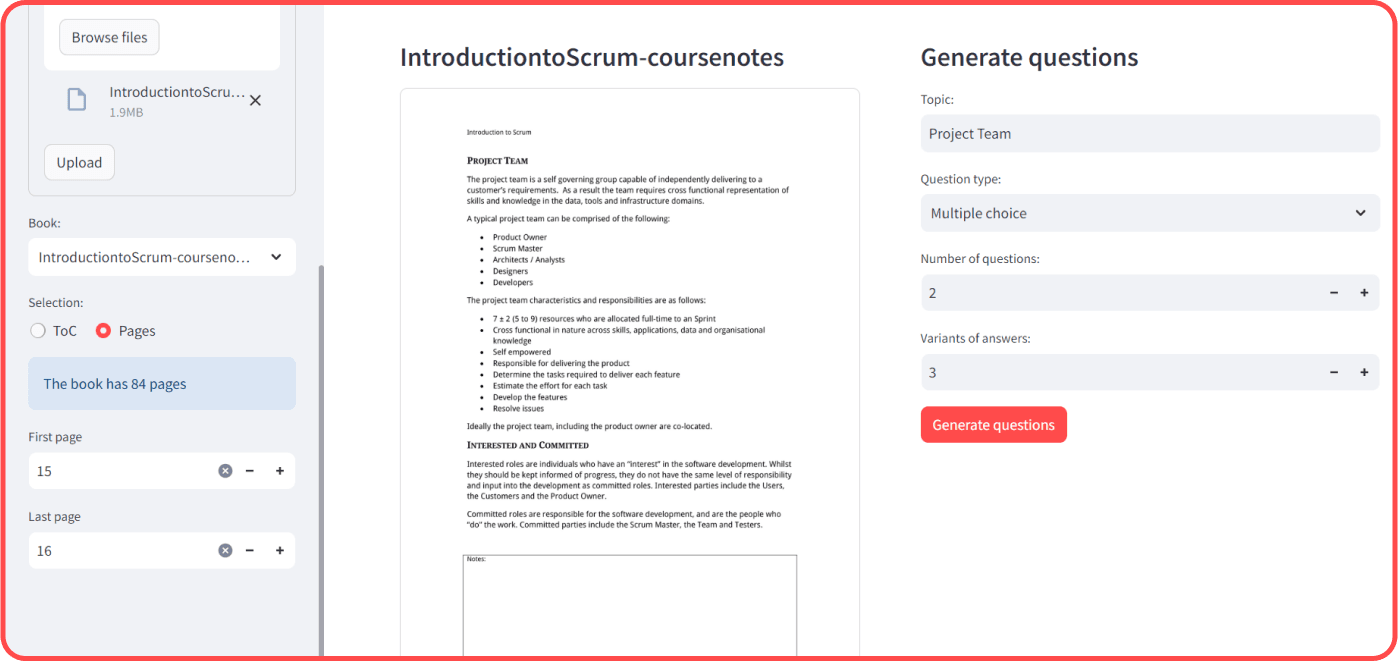
Step 2:
We have downloaded the book titled "Introduction to Scrum – Student Guide"1 to provide you with an illustrative example. This is what the settings panel for question generation looks like. During this phase, the user inputs a topic (using a few keywords or a sentence) for which questions should be generated. The user also chooses the question type (open-ended, multiple-choice, yes-no) and specifies the desired number of questions and corresponding answers. For example, for the topic "PROJECT TEAM" we need to get 2 multiple-choice questions and 3 answer choices.
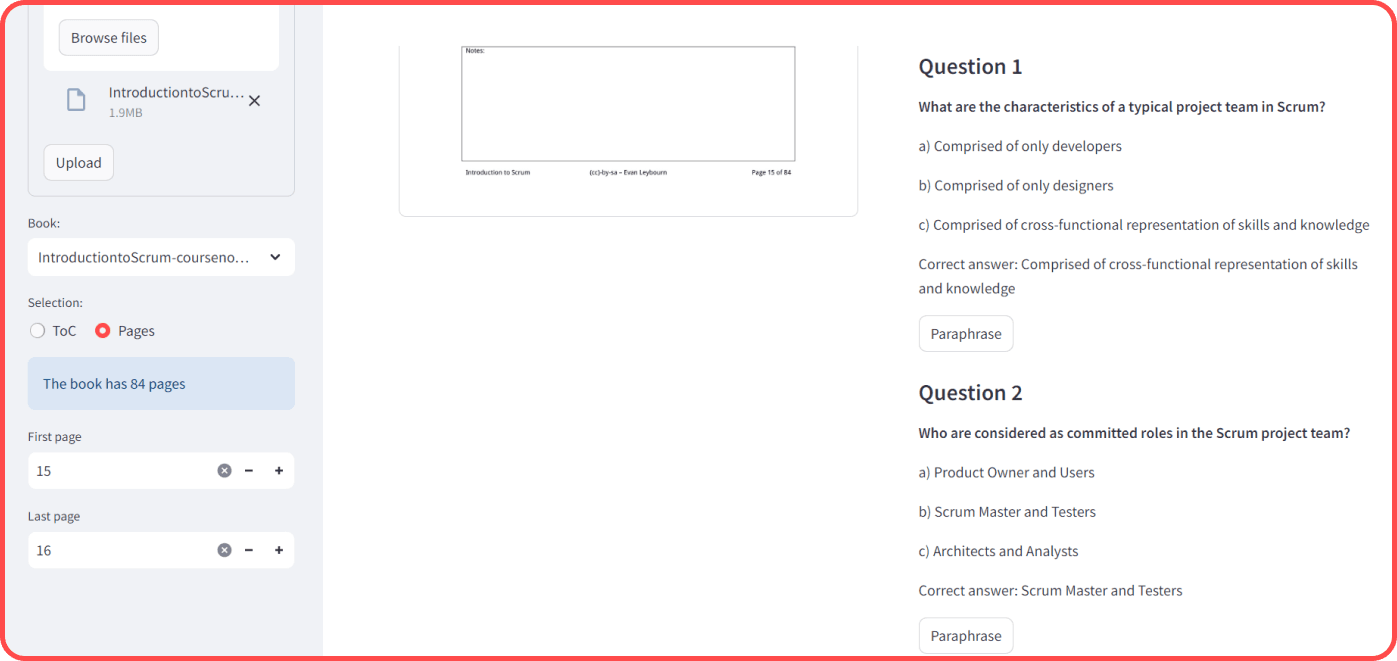
Step 3:
For this query, we got the following result. You can use the "Paraphrase" function to view other variants of questions. The results can be exported to a file feed
Implementation Process
The implementation process of such a solution involves several stages, starting from requirements identification and concluding with system deployment and support. Here is a general overview of the stages:
Research and Requirements Definition
- Conduct analysis of educational institution needs, identifying problems and user requirements (teachers, graduate students, administrators).
- Define key functional and non-functional requirements for the system.
System Architecture Design
- Develop the solution architecture, including the selection of technologies and tools.
- Determine the necessary libraries for PDF processing, NLP, and UI implementation.
- Showcase functionality with several sample texts before implementation begins.
Core System Development
- Create basic functions, such as the organization of a library of pre-loaded books, and interaction with ChatGPT for question generation.
- Implement PDF processing, including handling of multi-level tables of contents.
- Implement the core system with consideration for data security and confidentiality.
Integration with ChatGPT
- Configure and integrate with Azure OpenAI (ChatGPT) for question generation based on provided materials.
- Test the interaction with ChatGPT and optimize for high-quality results.
Testing
- Conduct testing of system functionality, performance, and security.
- Correct identified errors and enhance application stability.
Integration and Deployment
- Prepare for system deployment, including presentation to stakeholders.
- Gradual system implementation considering user feedback.
Support and Updates
- Ensure continuous technical support and monitor system performance.
- Regular updates considering feedback and implemented improvements.
Advantages
The implementation of the proposed solution will bring several significant benefits to the educational organization or publisher house as a whole and to the teachers and authors in particular. Here are some potential outcomes.
For the Educational Organization
Optimization of Time and Resources
- Regular updates considering feedback and implemented improvements.
- Efficient use of the question generation tool to create high-quality tasks.
Increase in University Competitiveness
- Utilization of innovative technologies and modern teaching methods to make the university more attractive to students and educators.
Enhancement of Education Quality
- Improvement in the structure and diversity of questions, contributing to increased student engagement.
- Ability to create adaptive tests considering the needs of an individual student.
- Opportunity to develop interesting and engaging assignments that stimulate independent learning.
For Instructors and Book Authors
Optimization of Time and Resources
- The instructor may either choose questions provided by AI or use AI-generated questions as an inspiration to save time for copy editing and focus on higher-quality teaching and interaction with students.
Expansion of Assignment Capabilities
- Ability to create diverse assignments suitable for various student learning styles.
Improved Accuracy in Assessment
- Analytics and result monitoring to help teachers assess the effectiveness of questions and quickly respond to student needs.
Development of Professional Skills
- Experience with modern technologies and task automation systems contributing to the development of teachers' professional competencies.
Results
To put it simply, we’ve designed an AI test question generator that creates high-quality questions and answers from any book or text. This tool saves authors and instructors hours of work every day, while also making student assessments more interactive and enjoyable - transforming the learning experience for everyone involved.
"This tool works on its own but can seamlessly integrate with other products. The AI quiz generator isn’t just in education – it’s also great for e-commerce, helping shoppers understand products and make better decisions. It can even improve customer support by giving more detailed answers and be useful in marketing for creating content and planning campaigns."


